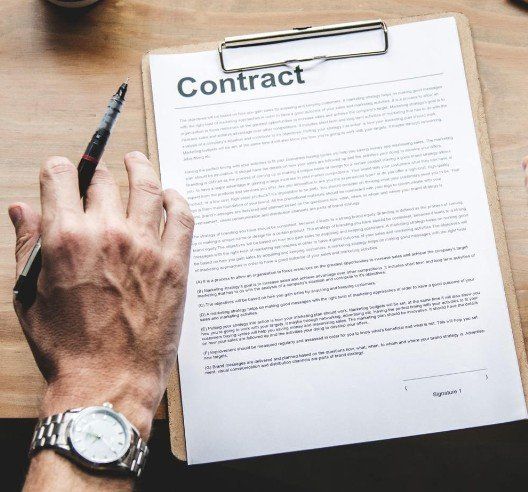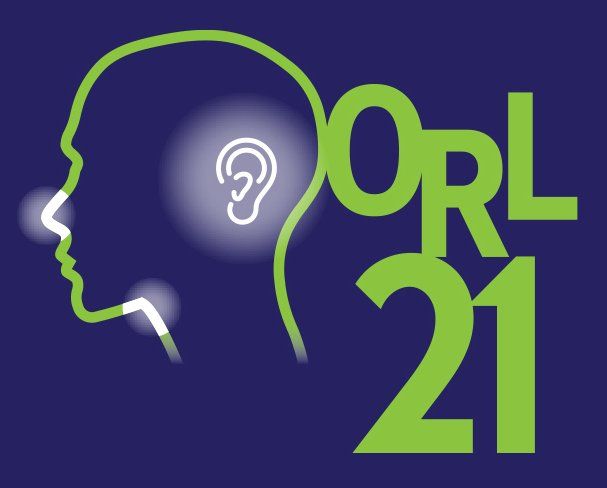By Jeanie Morrison-Low. MNZAS. 2018.
•
September 13, 2018
Here’s a question: if you had the choice, which would you rather go to? A registered or a non-registered plumber? A registered or non-registered electrician or builder? A chartered accountant or a non-chartered accountant? A doctor who is a member of the Royal New Zealand College of General Practitioners or a…quack? Who would you advise your kids to go to? Or your mum or dad? At the moment, in New Zealand, 21 health professionals are registered under the HPCA Act (Health Practitioners Competency Act) 2003. If you want to know which ones, go to: http://www.health.govt.nz/our-work/regulation-health-and-disability-system/health-practitioners-comp... This list includes podiatrists, opticians and optical dispensers, psychologists, and more obvious ones such as dentists and pharmacists. Key concepts here are “regulation” and “competence”. Currently, social workers are also being considered for registration. http://www.stuff.co.nz/national/politics/opinion/78774522/Get-on-with-it-compulsory-registration-for... In order for a profession to be considered for registration, they must be able to show “risk of harm” to the NZ public – and their professional association, if there is one, must want to go ahead with registration. Note, this is not “Risk of Death”, or even “Risk of physical harm”; it’s “Risk of Harm”. Audiology is not registered in New Zealand (although Australia has been looking into it, and a Parliamentary select committee there has recommended it). There seem to be three objections to registration here: 1) No risk of harm to the NZ public stems from audiology; 2) It is too expensive to do; 3) The Executive Council of New Zealand Audiological Society (the voluntary “self-regulatory” body of those audiologists who choose to belong to it) is not currently interested in registration. Let’s look at these three obstacles. 1) Risk of harm This could be risk of harm to a person’s physical well-being: - where someone with an acoustic tumour is not referred to a specialist, or a hearing aid is set too loudly, harming the person’s hearing; or they are not diagnosed with a serious hearing loss until it is too late (for children) to develop speech, or for surgery due to age and risk to the person’s balance organs (all cases seen in my practice with patients fitted elsewhere). This could mean risk of psychological or psychosocial harm: – when someone feels so isolated due to hearing loss that they commit suicide; or so isolated that they become seriously depressed https://vestibular.org/news/09-13-2012/link-between-untreated-hearing-loss-mental-health ; or they are not diagnosed early enough and do not develop the ability to speak; or they miss out on educational opportunities, or job opportunities, so that their earning potential is diminished; or are bullied or called stupid, because they can’t hear. Older people may fail dementia tests because they appear confused as a result of not hearing; or may mishear instructions https://www.ncbi.nlm.nih.gov/pmc/articles/PMC5069696/ . There is also increasing evidence that untreated hearing loss is strongly and positively correlated with cognitive decline. (Lin F et al, 2013, Hearing loss and cognitive decline in older adults. JAMA Intern Med.173,4; 293-299 https://jamanetwork.com/journals/jamainternalmedicine/fullarticle/1558452) . This could mean risk of financial harm: Perhaps it is this last one that is the real obstacle, and also the most obvious risk. That is, people may feel they pay too much for hearing aids, or not get “value for money” for the “treatment over time” that is the process required for a hearing aid fitting. They may, for example, pay for premium technology hearing aids, when in fact they are being fitted with very basic ones. They may also think they are paying for the skill of the professional who fits them, when in fact, in the absence of registration, anyone in New Zealand may fit hearing aids. Historically, hearing aid prices have bundled the cost of the hearing test (so the cost of the initial hearing test does not reflect the real costs to the clinic) and the fitting and follow up costs into the cost of the hearing aid. You are buying a treatment. The costs to patients of treatment from businesses without layers of management, or shareholders, may be substantially less than from a larger corporate group of clinics. Patient choice is important, so that cost comparisons can be made, involving all factors: type of aids, level of technology, length of treatment. Hearing healthcare (when it involves hearing aids) is big business. This is why you may hear the term “Hearing Industry” rather than “Audiology Profession”. Hearing aids are not cheap, in general, to the audiology clinic that buys them, although part of the cost to the patient usually includes the fitting and the follow-up appointments. You pay for the expertise of the trained audiologist – this can be up to 6 years of study. But how do you know that you have a trained audiologist, or a trained audiometrist? (Audiometrists, called “Hearing Aid Dispensers” in some countries, generally also undergo training). You don’t. Only registration gives name protection, with defined scopes of practice that can be enforced. You may just be seeing a sales person. Kitting out a single properly sound-treated and equipped clinic room can cost up to $100k in equipment alone. The cost of paying for audiologists, receptionists, layers of management, shareholders’ dividends (where these exist), rents, insurance, training, upskilling, etc are all recouped, in the main, from the price of hearing aids. Private clinics are, after all, businesses. Properly fitted hearing aids are customised to a person; the sound pressure level near the ear drum should be objectively measured against a known quantity, taking into account the geometry of the person’s ear canal; a computerised software program is applied to the hearing aids and tweaked according to the person’s subjective responses as well as results obtained from testing in a sound-treated environment. The brain gradually rewires itself over several weeks to the new input, and the aids will usually be adjusted over this time. Several follow-up appointments within a trial period are routinely part of the fitting process. Generally, if you are not happy with the aids at the end of the trial period, you can return the aids with no financial loss to yourself. However, when you see a sign that says “Free Hearing Tests”, or “Free Batteries”, or “Free Lunch”, be aware that the cost of this time spent doing the tests must be recouped by the clinic in other ways. In some business models, there are pressures on audiologists to “upsell” aids, or to sell equipment, such as smart-phone-linked aids, to elderly people who…don’t have smartphones. Pressure may also be applied to audiologists to sell aids to people who don’t yet need aids, or who are not ready to get aids. Take a family member or a friend with you to give you support, and to help you remember what is said. http://www.abc.net.au/news/2017-03-02/consumer-watchdog-puts-hearing-aid-industry-on-notice/8319738 Hearing aids also come in different levels of technology; essentially, the more you pay, the more features on the computer chip in the aid are activated. Cheaper aids, while using the same chip, have fewer features activated, although the aids will look exactly the same. This means that you need to be able to trust the person who is fitting you, and trust that there is oversight in the form of a Registration Board. Why would you want to separate a Health Profession from embedded commercial interests? • The purpose of a Health Registration Board is to safeguard the New Zealand public. • The purpose of an Industry body is to safeguard and support its commercial interests. Neither approach is wrong. But be clear of what we have here. Currently in New Zealand we have a powerful lobbying group: the NZ Hearing Industry Association. Their views on registration for audiology are not officially known. However, we feel that it is up to audiology clinicians to make this decision. 2) Registration too Expensive to do There are costs involved in setting up a new registration board. Scopes of practice have to be written, people have to be paid. So why not set up an Audiology Registration board under the auspices of an already existing authority? (The Medical Sciences Registration Authority has expressed interest). Scopes of practice and practicing standards have already been developed by the NZ Audiological Society (a voluntary and self-regulating group, but which has embedded links to industry) over many years; these could be used if Regulation was supported by the NZAS. An audiology practice quality control program has been developed by Independent Audiologists NZ (link within our website here). Many of the regulatory requirements are already met by clinics. Most registered health professions have both a Registration Board and also a Professional Society. There is no reason why Audiology, which already has a Society, could not be the same. 3) Lack of interest in registration from the NZ Audiological Society Their position is currently that “We are not looking at registration”. It may also be because some long-standing members of NZAS no longer practice audiology, and have not done so for many years or they work for industry groups that may be opposed to registration. In order to belong to a Registered Health Profession, you have to practice clinically, and keep current with new developments in your field. While their knowledge and experience is valuable within the NZAS, they would not be able to join a registered group, but could remain a part of the Audiological Society. At the New Zealand Audiological Society 2018 annual conference held in Auckland, 97% of audiologists, Audiometrists and post-graduate students surveyed on the question: “Should Audiology be a registered health profession?” voted “yes”. At the Acurity Conference for GPs held at Te Papa in Wellington in 2015, 100% of GPs thought that Audiology was a registered Health Profession, and many expressed surprise and dismay that it was not. At the Acurity Conference for GPs held in the same location the following year, 100% of GPs surveyed thought that Audiology SHOULD be a registered Health Profession. If you think so too, write to the Minister of Health, the Associate Minister of Health, or to your local MP and ask why it’s not. For your own protection. Jeanie Morrison-Low. MNZAS. 2018.





